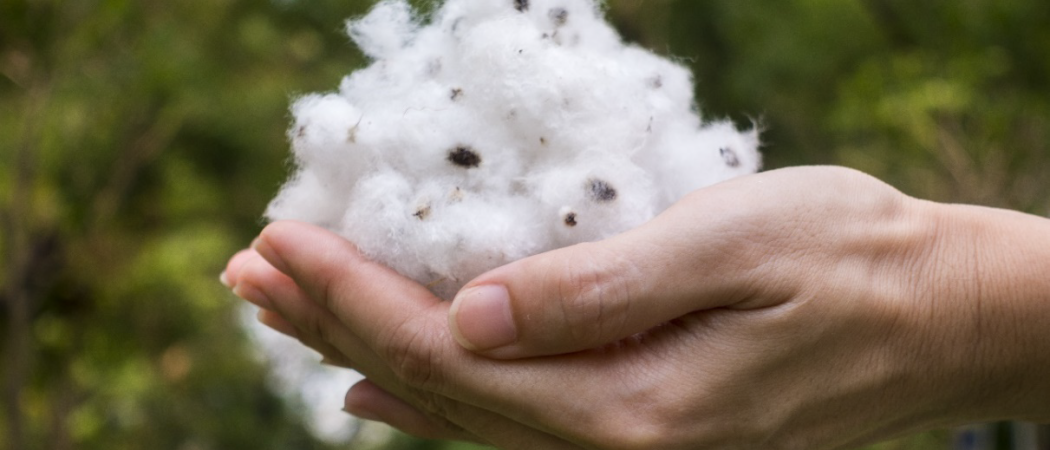
Over the past years, the number of cotton garments with “organic cotton” label have seen a significant increase as part of the growing sustainability trend in the fashion industry. Brands aiming to make a positive impact on the environment and committed to social responsibility are creating and promoting new organic cotton lines.
Consumers are increasingly making choices to ensure the well-being of our planet and are willing to pay more for an organic cotton item which guarantees sustainable and ethical production. But the journey of cotton from field to store is highly complex and transparency in the cotton supply chain has become a major challenge to sustainability governance for brands. Current methods relying on certifications and external labels cannot guarantee full traceability, making it a challenge to reliably trace the origin of cotton and determine the livelihoods of the cotton farmers. “Awareness of where and how products are made is a crucial first step towards embracing sustainable and ethical standards” says Michela Puddu, CEO and co-founder at Haelixa.
But how can one be sure that the organic cotton label on a T-shirt is truly representing what we buy? Common product traceability systems like barcode labels are applied on the final product or on the packaging, neglecting the need to trace the material from the initial stage to the fabric and the finished garment. Many certification schemes rely on paper-based chain of custody systems, which are more prone to fraud. With the goal of ensuring organic cotton supply chain transparency and integrity, Haelixa has developed a solution to trace cotton fibers along the entire supply chain. The solution consists in applying unique DNA markers to the material at the farm or cotton manufacturing facility. The tracers can be detected with a simple test at any point down the supply chain to obtain product information (cotton origin, authenticity, purity), enabling full end-to-end supply-chain control.
Among the various initiatives that Haelixa is joining to foster transparency in the cotton industry, the company took part in a pioneering new project, called the Organic Cotton Traceability Pilot. The pilot is testing the combination of cutting-edge technologies including physical in-product markers and blockchain to trace organic cotton through its value chain. The pilot was created through a partnership between Fashion for Good, C&A Foundation, the Organic Cotton Accelerator (OCA), and Bext360. The first phase of the project was made possible with the support of Pratibha Syntex, Kering, Zalando, PVH Corp., C&A and other technical partners, a unique mix of technology providers, philanthropic partners, multi-brand platforms, as well as brands, retailers and manufacturers all working in a collaborative manner to drive traceability in the organic cotton industry.
Haelixa was present on the field for the execution of this pilot project in India. The project involved applying Haelixa DNA tracers at different stages of organic cotton procurement. Distinct and unique DNA markers were used to distinguish individual farmers and locations. With the joint effort of the involved partners a complete tracing solution is being build, to serve all stakeholders in the textile industry. “Our technology is not only able to identify genuine organic cotton products, but also their farm of provenance as well as each manufacturer involved in the garment supply chain, ensuring true traceability” says Punit Mehra, Product Manager at Haelixa.
The Haelixa cotton traceability kit is just one of a series of solutions dedicated to ensuring greater supply chain transparency. “Initiatives like this hold the promise to transform the apparel and textile industry by providing reliable, effective tools to take action and introduce sustainable supply chain management practices. We invite all industry stakeholders to join us so that we can turn transparency into a standard industry practice” adds Michela Puddu.
More information, here.





 A unique international forum for public research organisations and companies to connect their external engagement with strategic interests around their R&D system.
A unique international forum for public research organisations and companies to connect their external engagement with strategic interests around their R&D system.